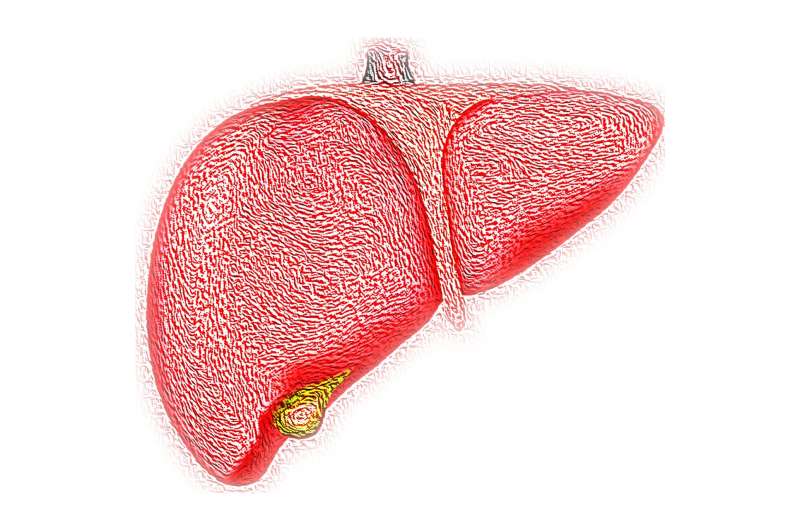Possible signal pathway in the fight against obesity-related fatty liver disease identified

A research group from the Medical University of Vienna reports how the hormone leptin stimulates the liver to export lipids and reduce the fat production in the liver. This occurs due to the activation of neurons in the brain stem. These findings provide new approaches for the fight against non-alcoholic fatty liver disease, which often occurs in connection with obesity. The results were just published in Nature Communications.
Leptin is a hormone produced by the adipose tissue and is critically involved in controlling appetite and hunger satisfaction. Leptin passes the blood-brain barrier and signals to the brain how much fat mass is available in the body. People suffering from pathological overweight (obesity) or a fatty liver generally exhibit elevated circulating leptin levels due to an increase in body fat mass. However, the leptin signal arriving in the brain may be limited due to leptin resistance.
A study of the Medical University of Vienna now shows in rodent models that a direct activation of leptin receptors in the brain stem regulates the fat content of the liver via a vagal mechanism. The vagal nerve connects the brain with various organs and regulates metabolism. It is a part of the autonomous nervous system through which the central nervous system communicates with the organs. The binding of leptin to receptors expressed in the brain stem or, more precisely, in the dorsal vagal complex, causes the activation of the vagal nerve and, consequently, the increase of the hepatic triglyceride export (dietary fat) and a reduction of de novo lipogenesis (synthesis of fat from carbohydrates) in the liver.
"Leptin protects against a fatty liver by transmitting a signal via a brain-vagus-liver axis and thus animates the liver to export fat," explains principal investigator Thomas Scherer of the Division for Endocrinology and Metabolism at the Medical University of Vienna. "In people with obesity, leptin does not arrive at the brain in sufficient quantities to transmit the necessary signals to the liver for the export of triglycerides."
One possible starting point for future therapies would be the direct administration of leptin into the brain, bypassing the blood-brain barrier. This could, for example, be achieved by administering leptin via a nasal spray or pharmacological approaches which restore and/or improve the leptin sensitivity of the brain. A translational research project with the support of the Austrian Scientific Fund (FWF) underway to clarify whether these results are also applicable in human beings.
More information: Martina Theresa Hackl et al. Brain leptin reduces liver lipids by increasing hepatic triglyceride secretion and lowering lipogenesis, Nature Communications (2019). DOI: 10.1038/s41467-019-10684-1




















